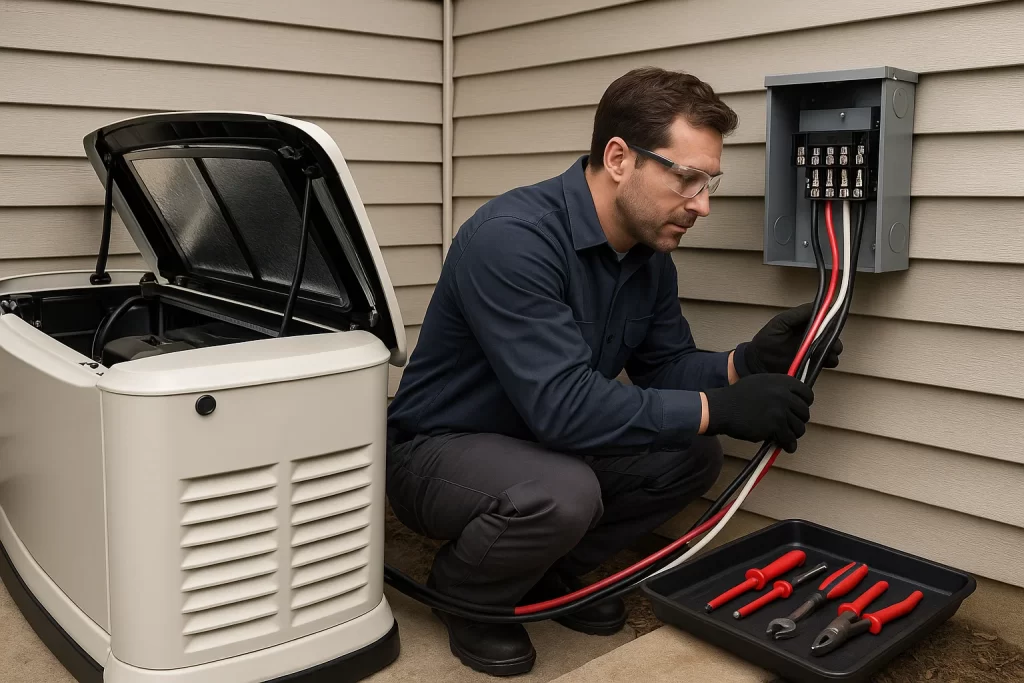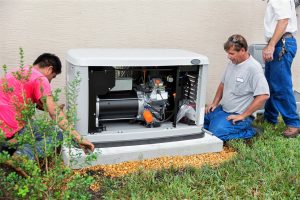Installing a standby generator is one of the smartest decisions a homeowner can make—especially in areas prone to power outages from storms, hurricanes, or overloaded electrical grids. But once you’ve decided to invest in backup power, the next big question is: How much generator power do you actually need?
Choosing the right size generator is crucial. If it’s too small, it won’t run everything you need. Too large, and you may overspend on equipment and fuel. To get the most out of your investment, you’ll need to evaluate your power needs, lifestyle, and the specific reasons you’re installing a generator in the first place.

Why Install a Standby Generator?
Standby generators provide automatic backup power the moment your home loses electricity. Unlike portable generators, which require manual setup and fueling, standby systems are permanently installed outside your home and powered by natural gas or propane. They can detect outages instantly and restore power to critical systems in seconds.
Top reasons homeowners install standby generators include:
- Protection during storms – Hurricanes, strong winds, and heavy rains can knock out power for hours or days. A standby generator keeps your lights, AC, and appliances running through it all.
- Medical needs – Homes with medical equipment (like oxygen machines or refrigerated medications) rely on uninterrupted power to keep loved ones safe.
- Work-from-home reliability – With so many households working remotely, staying online is essential for productivity and income.
- Food preservation – Avoid costly spoilage by keeping your refrigerator and freezer running during extended outages.
- Comfort and safety – Maintain heating, cooling, lighting, and security systems to protect your family during emergencies.
What Can a Generator Power?
Before you can determine the size of generator you need, consider what you want it to power:
- Essential circuits only (refrigerator, HVAC, a few lights, outlets)
- Whole-house coverage (everything, including large appliances and electronics)
- Somewhere in between (critical systems and a few luxuries like the microwave or internet router)
Your selection depends on your priorities during an outage and how self-sufficient you want to be.
Sizing Basics: Generator Output Measured in Kilowatts (kW)
Generator capacity is measured in kilowatts (kW), and the size you need depends on the total wattage of the appliances and systems you want to power. Here’s a rough idea of what different generator sizes can handle:
- 7–10 kW – Powers essential circuits like a fridge, sump pump, a few lights, and outlets
- 11–15 kW – Covers basic home needs plus a small HVAC system or water heater
- 16–22 kW – Suitable for medium-sized homes with central AC, kitchen appliances, and more
- 25–50+ kW – Whole-home coverage for larger homes with multiple systems and electronics
To accurately size your generator, you should:
- List your must-have appliances and note their starting and running wattage
- Calculate total wattage, including starting surges for items like AC units and refrigerators
- Consult a professional, who can perform a load assessment to ensure your generator meets your home’s demands safely and efficiently
Factors that influence generator sizing include:
- Climate and HVAC needs – In hot climates, powering your air conditioning during an outage might be a top priority, which increases power needs
- Fuel type and availability – Propane vs. natural gas can influence how large of a generator you can install and how long it can run
- Home size and layout – Larger homes or those with extensive smart home technology often require more backup power
- Future plans – Planning to add a pool, electric vehicle charger, or home addition? Consider sizing up now to avoid replacement later
Call Touchstone Heating and Air 24/7 for exceptional customer service! Serving the communities of North Central Florida since 1998.

